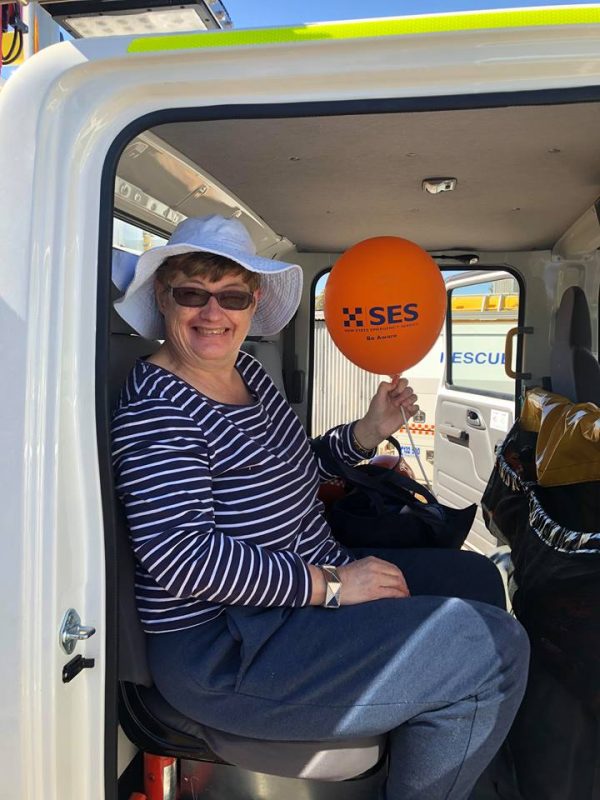
THE Parkes SES held its annual open day and another large turn out of crowds was on display for the event.
For some CDS clients, it was a chance to learn more about the SES, what they do and how they work for the community.
According to Wikipedia and other online sources, The State Emergency Service (SES) is the name used by a number volunteer organisations in Australia that provide emergency help during and after declared (natural or otherwise) disasters, typically flood, storm or tsunami.
The SES also assist in other emergencies, such as vertical and road crash rescue and medical emergency. In other scenarios the SES may provide a support role to other agencies, particularly police and fire. The SES is operational 24 hours a day.
The SES is constituted as separate organisations operating in different Australian states and territories. Eight of the SES organisations co-ordinate through the Australian Council of State and Territory Emergency Services (ACSES).
During World War II the National Emergency Service was created on 1 February 1939 to provide air raid wardens with the organisation disbanded six months after the end of the war].
The Civil Defence Service began in Australia in 1955. It was formed as a precaution to any potential attacks on Australian soil. The name was changed to the “State Emergency Service” (abbreviated to “SES”) during the 1970s, to reflect a change of emphasis into providing emergency help related to floods, storms and other natural emergencies. Every state and territory in Australia has its own State (or Territory) Emergency Service, and there are 43,000 volunteers spread across the country. Each state or territory is broken into regions, then units, and finally groups or teams.
Have you thought about volunteering? The Parkes Unit is looking for keen, enthusiastic and dependable people. Whatever your fitness level, background, skills or training, you can always contribute in some way. What about operations management, communications, logistics, community education, catering, maintenance or planning? All valuable skills that support the more-visible field and response work.
